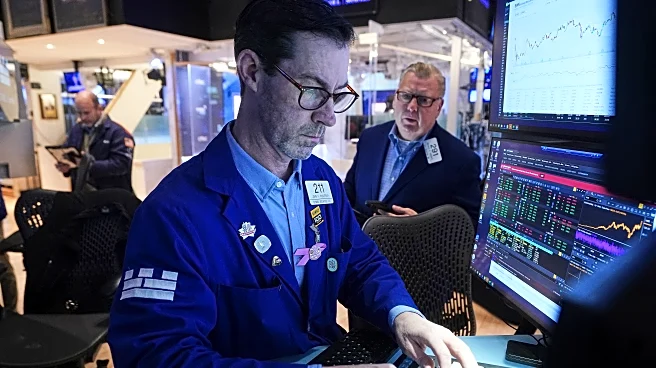What's Happening?
The Trump administration's 'Compact for Academic Excellence in Higher Education' has ignited controversy due to its emphasis on viewpoint diversity. This initiative claims that open inquiry is lacking
in U.S. classrooms, a critique that aligns with longstanding conservative concerns about liberal bias in academia. Surveys from elite institutions like Duke and Harvard suggest that over 60% of faculty identify as liberal, with humanities and social sciences showing a stronger liberal inclination compared to STEM fields. The push for viewpoint diversity has led colleges to incorporate more ideological diversity in courses and programming, aiming to foster environments where students can freely express and challenge ideas.
Why It's Important?
The focus on viewpoint diversity in higher education is significant as it addresses concerns about ideological bias and the quality of education. Critics argue that the initiative may distract from improving educational standards, emphasizing who is in the classroom rather than how knowledge is acquired. The debate highlights the tension between fostering open inquiry and maintaining academic integrity. Institutions face pressure to balance ideological representation while ensuring rigorous academic discourse. The outcome of this initiative could influence how colleges approach curriculum development and faculty recruitment, impacting the educational landscape and potentially reshaping academic culture.
What's Next?
Colleges and universities may continue to adapt their policies and curricula to address the push for viewpoint diversity. This could involve recruiting guest speakers with diverse perspectives and implementing programs that challenge prevailing ideologies. The broader academic community might engage in discussions about the role of ideological diversity in education, potentially leading to policy changes or new initiatives aimed at fostering open inquiry. Stakeholders, including educators, students, and policymakers, will likely debate the effectiveness and implications of these changes, shaping the future direction of higher education in the U.S.
Beyond the Headlines
The emphasis on viewpoint diversity raises ethical questions about the role of education in promoting critical thinking versus reinforcing existing hierarchies. It challenges institutions to reconsider how they cultivate intellectual curiosity and empathy among students. The initiative could lead to a cultural shift in academia, encouraging deeper listening and understanding across ideological divides. This approach may redefine the concept of open inquiry, focusing on the disposition to wonder and engage with diverse perspectives, ultimately transforming the educational experience.










